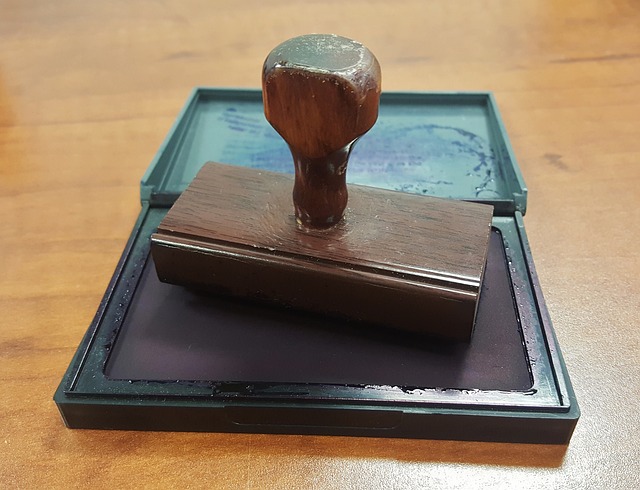Rapid Translate Team
It’s normal to confuse some terminology during translation projects. Sometimes, people use the words “certified” and “notarized” interchangeably. However, getting into the process has helped people discover they aren’t the same. Thus, knowing the differences between certified vs notarized translation services is essential.
It will help you seek the right services and avoid incurring costs. This blog post highlights the unique points of notarized copy vs certified copy. Read on to learn the differences.

Table of Contents
What Is a Certified Translation?
A certified translation contains a signed statement stating that the translation is correct and complete. This translation certification assures concerned parties that the translated copy is a true representation of the original document. Certified copies are verified duplicates of an original document.
This verification process makes the document legally acceptable in various legal and official contexts. A translator is usually responsible for providing a document’s certification, which they may have obtained from a professional organization.
However, becoming a certified translator isn’t compulsory to provide this certification. The only requirement is that the translated copy be accurate.
Unfortunately, hiring someone without the skill has several drawbacks. There are instances where your documents may need to satisfy specific translation requirements.
Thus, the translator should have the knowledge and experience to provide a certified translation. Only a professional document translation agency or freelance translator can provide this service.
Agencies like Rapid Translate’s certified document translation services ensure your document’s high quality and acceptance.
What Is a Notarized Translation?
A notarized translation involves a translator signing its accuracy affirmation in the presence of a notary public. A notary is a government-approved official who can perform notary services on translated documents. The official personally verifies the document’s content and declares its accuracy.
After completing the document translation, the translator will take it to the notary officer’s office. The translator will then swear an oath to the translation’s accuracy and sign it before the notary. After this, the notary will sign the translated document and include an official seal.
This seal officially declares the translated copies as notarized documents. A notarization process is generally longer and more expensive due to the process involved. However, you need notarization to submit various legal documents to several government agencies.
In addition to affirming translated documents, the notary must verify your photo ID and proof of address. The government official may refuse to notarize your document if they consider it inadequate. Thus, it is best to use a professional like Rapid Translate’s notarization translation service to get the perfect result.

What Is the Difference Between Certified and Notarized?
The significant difference between certified and notarized is the presence of a notary public during the accuracy authentication. A notarized and certified copy of a document is the same except for the affirmation of a notary. A notarized translation is only complete after signing the authentication in the presence of a notary.
Meanwhile, a certified translation is complete after a competent translator includes a certification statement. Every notarized document has gone through certification.
However, certified translations don’t necessarily need notarization. Notarizing a translation only confirms that the document went through the proper procedure.
This doesn’t guarantee its accuracy or quality standards. Many government agencies have abandoned the need for notarized translations, but some agencies and private institutions may still require them.
The discussion of notarized vs certified arises because people use both terms interchangeably for every document. However, certified copies often refer to vital records and documents like birth, divorce, death, and marriage certificates. On the other hand, the types of documents needing notarization are mostly business and legal.
This includes legal documents like affidavits, contracts, and deeds. It also covers financial and business documents like loan and mortgage documents. However, this doesn’t mean certified translations aren’t useful for official government or legal procedures. Only in a few cases do official organizations require notarized translated documents.
Certified vs Notarized Birth Certificate: Which Do You Need?
You don’t need a notarized birth certificate if you have an original copy. Notarizing a birth certificate is unnecessary because it is already a legal and official document. However, a debate about a certified vs notarized birth certificate occasionally arises when people demand notary services.
Typically, a birth certificate contains an official seal that proves its validity. Once a document has this seal, it is unnecessary to notarize it again. Anyone claiming to have an original certificate possesses a certified copy. Government agencies like the Health Department or Vital Statistics Office always have the original birth record.
These agencies will then issue certified copies upon request. The issued copies usually contain advanced features like watermarks, thermochromic ink, and multicolored or embossed seals. With all these qualities, the certificate becomes an official certified document.
Additionally, notaries don’t have the authorization to make certified translated copies of birth certificates. Regardless of the source country, notaries can’t certify the accuracy of the translation. These restrictions often apply to all vital records, including marriage, death, and divorce certificates.
However, a person can make an affidavit stating that a copy of their certificate is genuine. They can then notarize this affidavit like every other translated document. Unfortunately, it is unlikely that an official agency would accept this type of attestation. In most cases, the required copy is usually a certified one issued by a government agency.

Certified Copy vs Notarized Copy: Where To Get Them
Depending on the translation requirements for your documents, you may need a certified or notarized copy. It is best to always confirm the requirements for each document you want to submit. This would help you determine which translation service provider you need for your project.
Several professional translation companies offer both certified and notarized documents. You can get physical agencies around you to complete the process. Alternatively, you can hire an online certified translation service to provide high-quality certified copies.
Similarly, several notarized translation service providers exist online and offline. Getting the copy you need is easier with these translation service providers. When you work with these providers, they’ll provide an expert translator to translate and certify your document.
Then, you can get the certified translated copy as soon as possible. If you want a notarized copy, the translator will take the document through the notarization process. Knowing these differences settles the certified vs notarized debate.
However, you can achieve both translation goals with Rapid Translate’s professional online translation services.
Working with Rapid Translate allows you to meet deadlines with the fastest turnaround times. We guarantee 100% acceptance when you submit our translated results to any official and government organization.
Expand your global reach with our premium services. Regardless of the translation requirement for your target country, we’ve got you covered. Order now to experience the power of smooth communication!





